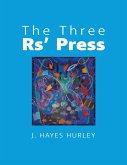Utopia is a work of fiction and socio-political satire by Thomas More, written in Latin and published in 1516. The book is a frame narrative primarily depicting a fictional island society and its religious, social, and political customs. In part, Utopia was an attempt to cling to the medieval ideal of the contemplative life - an ideal that the Reformation, which privileged action and change, was 'disrupting', to use the modern coinage. Utopia presents many themes such as wealth, power, slavery, and causes of injustice. The overarching theme throughout the book is the ideal nature of a Utopian society. In Utopia, there is no greed, corruption, or power struggles due to the fact that there is no money or private property.
Dieser Download kann aus rechtlichen Gründen nur mit Rechnungsadresse in A, D ausgeliefert werden.









